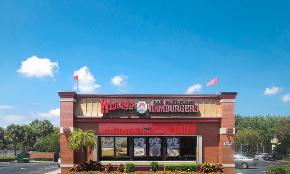 Muoio: “Even as bricks-and-mortar retailers remake themselves to better compete with e-retail, that phenomenon is still bad for retail space demand since these reinvented retail stores will shrink the footprints of their physical stores.”
Muoio: “Even as bricks-and-mortar retailers remake themselves to better compete with e-retail, that phenomenon is still bad for retail space demand since these reinvented retail stores will shrink the footprints of their physical stores.”
IRVINE, CA—“We don’t think the retail market has reinvented itself particularly well, and the culling of the herd continues,” Ten-X’s senior quantitative strategist Chris Muoio tells GlobeSt.com. According to the company’s recent Retail Market Outlook, despite the retail sector’s malaise, several markets across the US are not only weathering the storm but experiencing impressive growth
The report reveals that Miami; Fort Lauderdale, FL; Houston; Austin; and Tampa are top “buy” markets for retail investors. These markets, concentrated in Florida and Texas, have been able to defy national trends, primarily thanks to robust local economies fueled by consistent job and population growth.
The Ten-X Research report also notes that e-commerce—the single largest secular threat to traditional retail—now comprises more than 13% of the industry’s sales, resulting in “agonizingly slow” growth in retail fundamentals. That share has been rising for years and shows little signs of slowing, leading big-box retailers to either close or downsize many of their stores. Hedge funds have increasingly been shorting real estate investment trusts and bonds tied to shopping malls, adding even more fuel to the already powerful headwinds facing the sector.
We spoke with Muoio about the progress of the retail market and the next step for its recovery.
GlobeSt.com: How well do you feel the retail market has reinvented itself despite several disruptors?
Muoio: We don’t think the retail market has reinvented itself particularly well, and the culling of the herd continues. Some malls and retail locations are attempting to pivot toward more experiential concepts, which have proven to be more resilient and resistant to the technological disruption, but it seems that the majority are truly struggling. Even 5th Ave. in New York City, once a retail power corridor, has proven not to be immune. This is going to be a very long, ongoing process.
GlobeSt.com: Experts say the demise of retail is greatly exaggerated. Do you agree?
Muoio: It’s very strong language, but it’s hard to call it exaggerated; retail bankruptcies are at recessionary levels, and a new headline of either a bankruptcy or store closings seem to hit every day. Furthermore, the stock prices of large department stores continue to plummet as more store closures are announced and same-store sales are failing to stabilize. Only the prime mall and other retail locations or properties in markets with truly robust housing and demographic backdrops are weathering the storm. The rest are seeing persistently high vacancies and stagnant rents, despite the long economic expansion. Even as bricks-and-mortar retailers remake themselves to better compete with e-retail, that phenomenon is still bad for retail space demand since these reinvented retail stores will shrink the footprints of their physical stores.
GlobeSt.com: What do you think the next step is for the retail sector’s recovery?
Muoio: Further downsizing of store sizes and number of locations. The country is just over-supplied from a retail perspective, especially as e-commerce sales growth continues to accelerate. We have yet to see e-retail make a dent in the grocery segment, and when it does, another major disruption is in the offing. Chain-scale restaurants have been struggling, but for different reasons, as rising wages are compressing margins. Some property owners, and even municipalities, might want to begin exploring if retail is the best use of some of these secondary/tertiary properties with high vacancies. In many cases, rezoning the land and converting it to a different, more mixed-use sort of development may provide greater value to owners and the broader community.
GlobeSt.com: What else should our readers take away from your report?
Muoio: The rise in e-commerce is continuing to accelerate, and retail fundamentals are going to face this headwind for years to come. Retail fundamentals have struggled mightily during this economic expansion, owing to the e-commerce disruption. A market downturn could really dent fundamentals.

















 Copyright © 2024 ALM Global, LLC. All Rights Reserved.
Copyright © 2024 ALM Global, LLC. All Rights Reserved.